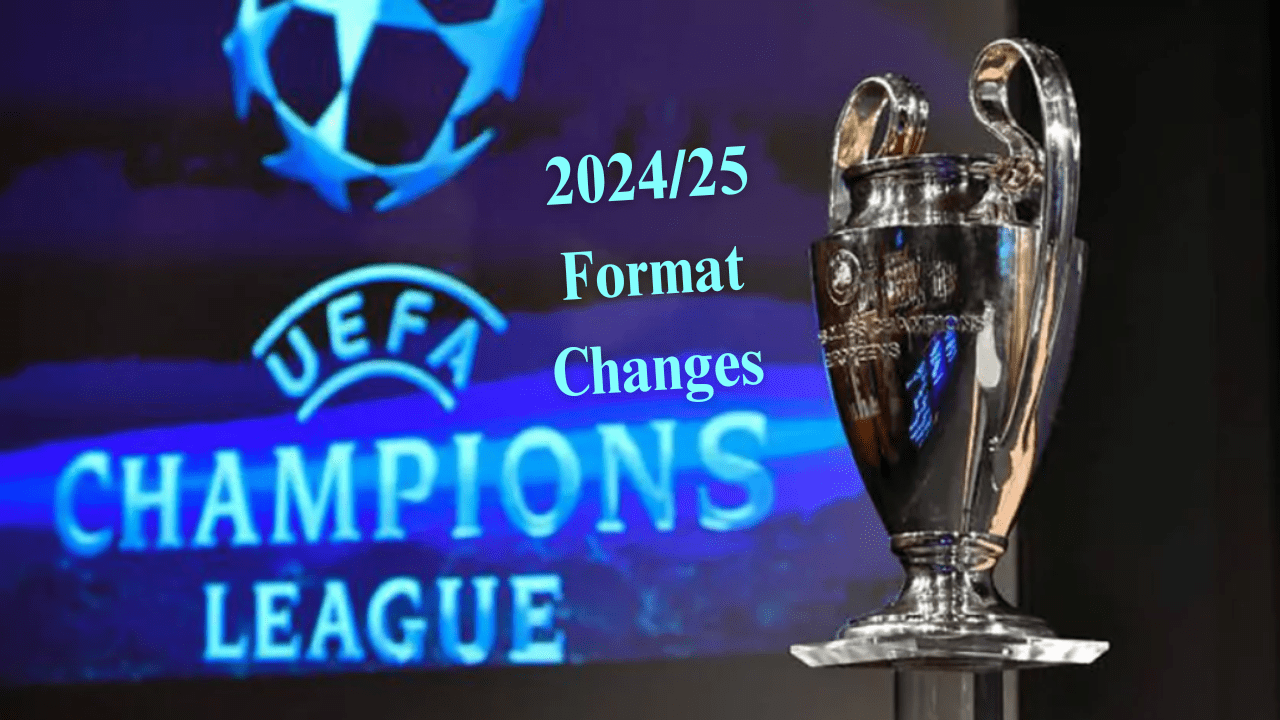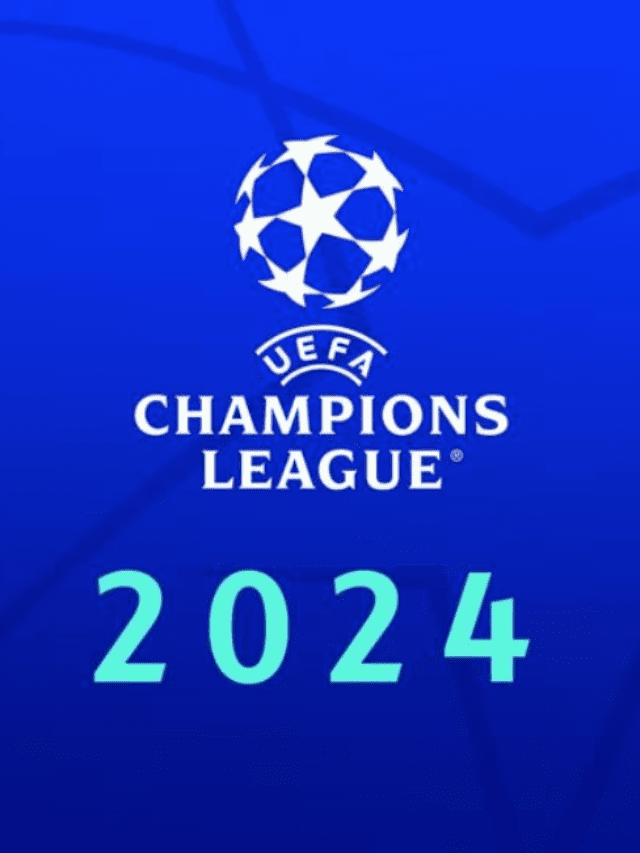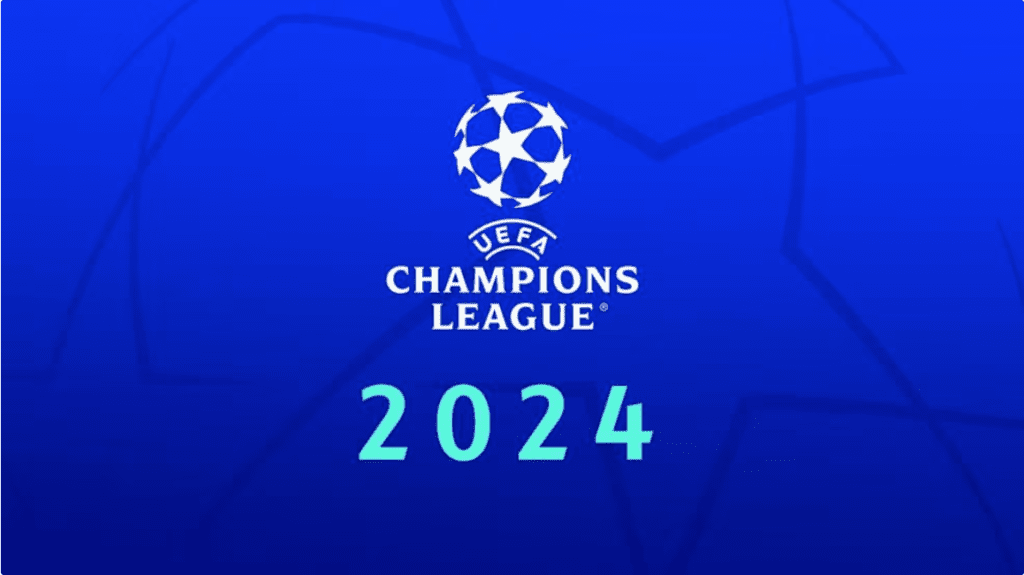The Champions League format 2024 promises to revolutionize the competition. Starting in 2024, the UEFA Champions League will introduce a single league phase with 36 clubs. This innovative format ensures Champions League fans can anticipate fresh matchups and heightened excitement throughout the tournament.
Table of Contents
European football has always been known for its adaptability and commitment to staying at the forefront of the sport. The UEFA Champions League, the pinnacle of European club football, is no exception to this rule. Since its inception as the European Champion Clubs’ Cup in 1955, the competition has evolved continuously to meet the ever-changing dynamics of the game. In 2024, the UEFA Executive Committee announced a groundbreaking new format for the 2024/25 edition of the UEFA Champions League. In this article, we will delve into the major changes in the UEFA Champions League for 2024/25, what stays the same, and the impact it has on fans and other UEFA club competitions.
For Your Interest:
European football’s ability to adapt and evolve is a testament to its success and popularity worldwide. From its roots as the European Champion Clubs’ Cup, the UEFA Champions League has continually transformed to stay in sync with the ever-changing landscape of football. This time, the change comes in the form of a new format for the 2024/25 season, one that promises to enhance the competition for clubs, players, and fans alike.
Planning the Future
The UEFA’s decision to overhaul the Champions League format for 2024/25 was not taken lightly. Extensive consultations with key stakeholders in the European football community were conducted to ensure that the new format would serve the best interests of everyone involved. This collaborative approach led to the approval of the final format, access list, and calendar for European club competitions on May 10, 2022.
UEFA President Aleksander Čeferin emphasized the commitment to the fundamental values of sport and open competition. “Another proof that European football is more united than ever,” he stated, highlighting the unanimous decision of the UEFA Executive Committee, the European Club Association, European Leagues, and national associations.
UEFA Champions League Format 2024: Explained
Group Stage is Out of the League
The most significant change in the UEFA Champions League format for 2024/25 is the departure from the traditional group stage system. Currently featuring 32 participants divided into eight groups of four, the new format will welcome 36 clubs to the league phase. This addition of four more teams will provide additional opportunities for clubs to compete at the highest level in Europe. In this revamped format, all 36 participating clubs will be ranked together in a single league competition.
More For You: HyperlinKIOSK
Changes in Opponent Shuffling
Under the new format, teams will play eight matches in the league phase, but instead of facing three opponents twice (home and away), they will compete against eight different teams. This change will offer clubs the chance to test their skills against a more diverse range of opponents. To determine these eight different opponents, teams will initially be ranked in four seeding pots, with each team drawing two opponents from each pot, resulting in four home and four away fixtures. This not only adds variety but also increases the likelihood of early matchups between top-tier teams, creating excitement for fans and delivering more competitive matches.
Allocating the Four Additional Slots
Qualification for the Champions League will continue to be open, with access determined by a club’s final position in the previous season’s domestic league and the association club coefficient ranking. The basis of the access list will remain largely unchanged, but four additional slots will be allocated in 2024/25 as follows:
- Slot One: Awarded to the club ranked third in the championship of the association in the fifth position on the access list.
- Slot Two: Given to a domestic champion by extending the number of clubs qualifying via the Champions path of the competition’s qualifying process.
- Slots Three and Four: Allocated to associations with the best collective performance by their clubs in the previous season. These associations will each earn one automatic place in the league phase, known as the ‘European Performance Spot,’ for the club ranked next-best in their domestic league.
Road to The Knockouts
Dynamic League Phase
The results of each match will determine the overall ranking in the new league, with three points for a win and one for a draw. The top eight teams in the league will secure automatic qualification for the round of 16. Teams finishing between 9th and 24th place will engage in a two-legged knockout phase play-off to earn their place in the last 16. Teams finishing 25th or lower will be eliminated, with no access to the UEFA Europa League. This format ensures that every club has something to play for throughout the league phase.
Also Read: Who will win the 2023 Cricket World Cup in India?
Efficient Transition to Knockout Phase
In the knockout phase, the teams that finished between 9th and 16th will be seeded in the knockout phase play-off draw, meaning they will face teams placed 17th to 24th, with the return leg typically at home. The eight clubs that emerge victorious from the knockout phase play-offs will then progress to the round of 16, where they will face one of the top-eight finishers, who will be seeded in the round of 16. This arrangement aims to strengthen the synergy between the league and knockout phases and provides a clear route for teams to reach the final.
Similar Changes in Europa and Conference Leagues
In addition to the UEFA Champions League, the UEFA Europa League and the UEFA Conference League (formerly the Europa Conference League) will also see format changes for the 2024/25 season. These competitions will feature 36 teams in the league phase, offering fans and clubs more opportunities for European glory.
Timeline for European Club Competitions
The calendar for these competitions will be strategically scheduled to ensure minimal disruption to domestic leagues. Champions League matches will typically be played on Tuesdays and Wednesdays, while Europa League and Europa Conference League matches will take place on Thursdays. Each competition will have its exclusive matchweek, with all games on the final matchday of the league phases being played simultaneously.
Benefits for Fans and European Football
Enhanced Fan Experience
The new UEFA Champions League format promises several benefits for fans:
- More High-Stakes Matches: Fans can anticipate more top European matches, and these games will occur earlier in the competition, creating excitement from the outset.
- Competitive Balance: The format introduces a better competitive balance, allowing each team to face opponents of similar competitive levels throughout the league phase.
- Every Game Matters: The new format ensures that any result can dramatically change a team’s position, even up to the last matchday. Winning or losing the final league phase game could determine whether a team qualifies automatically, enters the play-offs, or gets eliminated.
Strengthening European Football
The changes made to the UEFA Champions League format aim to secure the positive future of European football:
- Sustaining Domestic Leagues: The new format seeks to balance the interests of club competitions with those of national leagues to ensure the continued sustainability of domestic football.
- Financial Commitment: UEFA reaffirms its strong financial commitment to European football, guaranteeing solidarity to clubs not participating in UEFA club competitions. This support reinforces the foundation of European football.
A Legacy of Evolution
The UEFA Champions League’s evolution stands as a testament to the ever-changing nature of the sport. From the European Champion Clubs’ Cup to the current UEFA Champions League, the competition has continually adapted to meet the evolving needs of fans, clubs, and the broader European football community. As we eagerly anticipate the kickoff of the new era in 2024, the UEFA Champions League remains at the forefront of football innovation, showcasing the enduring spirit of the beautiful game.



